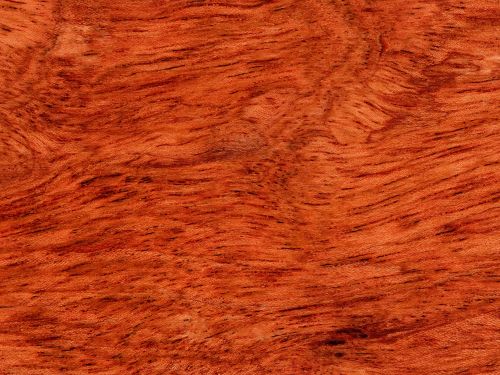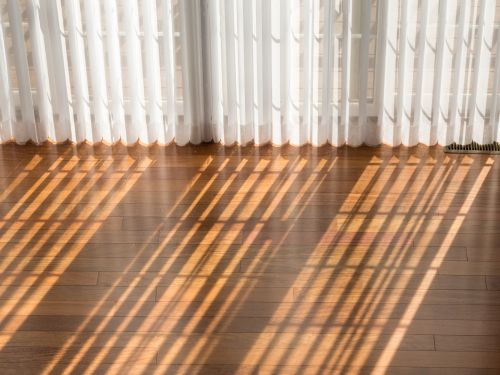Brazilian Cherry Hardwood Flooring: Exotic Elegance That Lasts a Lifetime

Few hardwoods make a statement quite like Brazilian Cherry hardwood flooring. Known for its deep reddish-brown tones, incredible durability, and luxurious grain, this exotic wood brings warmth and sophistication to any interior. Also known by its native name, Jatoba, Brazilian Cherry hails from the lush forests of Central and South America and has become one of the most sought-after premium hardwood flooring options worldwide.
From elegant dining rooms to high-traffic hallways, Brazilian Cherry delivers unmatched richness and strength that transforms spaces into timeless showpieces.
Appearance
Radiant Reds that Deepen with Age
Brazilian Cherry is celebrated for its rich, warm hues that range from golden salmon and orange-red to deep, lustrous burgundy. Over time, it undergoes a beautiful color transformation—darkening and deepening as it’s exposed to natural light. This aging process adds depth and dimension, enhancing its exotic allure.
The grain of Brazilian Cherry is typically interlocked or wavy, giving it a natural shimmer and visual movement. The result is a floor that looks luxurious and one-of-a-kind—no two planks are ever identical.
Because of its bold color and elegant sheen, Brazilian Cherry pairs perfectly with classic, Mediterranean, or high-end contemporary interiors, creating an instant focal point in any space.
Durability
One of the Hardest Woods on Earth
If strength is what you’re after, Brazilian Cherry delivers in spades. With a Janka hardness rating of approximately 2,350, it’s nearly twice as hard as red oak and among the most durable hardwoods available.
This exceptional hardness makes it highly resistant to dents, scratches, and daily wear, making it ideal for both residential and commercial spaces. Brazilian Cherry’s dense structure also means it holds up remarkably well in high-traffic areas, from busy entryways to open living spaces.
However, because of its density, Brazilian Cherry can be challenging to cut and nail—professional installation is strongly recommended for a flawless finish.
Installation and Finishing
Brazilian Cherry hardwood flooring comes in both solid and engineered varieties. Solid planks showcase the full natural beauty of the wood, while engineered versions offer added stability in environments with fluctuating humidity or temperature changes.
The wood accepts finishes beautifully—especially clear or natural sealants that allow its color evolution to shine through. Staining is rarely necessary; the wood’s natural pigments do all the talking.
Keep in mind that Brazilian Cherry darkens quickly when exposed to light, particularly during the first six months. To ensure even coloration, rotate rugs and furniture periodically until the color stabilizes.
Maintenance: Rich Color, Low Fuss
Despite its exotic appearance, Brazilian Cherry is surprisingly easy to maintain. Here are a few care tips to keep it stunning for decades:
- Sweep or vacuum regularly to remove grit and prevent surface scratches.
- Use wood-safe cleaners and avoid harsh chemicals or excessive water.
- Apply felt pads under furniture legs to prevent dents.
- Recoat or refinish every 10–15 years as needed to refresh its glossy surface.
Because of its darkening effect, Brazilian Cherry naturally hides minor scratches and blemishes, keeping your floor looking new with minimal effort.
Sustainability and Environmental Considerations
Brazilian Cherry is harvested from responsibly managed forests in South and Central America, and FSC-certified Jatoba flooring ensures sustainable sourcing. Buyers should always look for certifications to guarantee that their flooring comes from ethically harvested, environmentally friendly sources.
As a long-lasting, renewable material, Brazilian Cherry is an eco-conscious choice for homeowners seeking both luxury and longevity.
Styling Brazilian Cherry Floors: Bold Meets Timeless
With its dramatic color and natural luster, Brazilian Cherry commands attention—but it’s also surprisingly versatile.
Traditional & Classic Interiors
Pair with cream or beige walls, white trim, and rich furniture tones like mahogany or espresso.
Modern Spaces
Use wide-plank Jatoba floors with matte finishes and minimalist décor for a sleek, sophisticated look.
Transitional Design
Combine Brazilian Cherry flooring with light neutral furniture to balance its depth and intensity.
Its deep red tones pair beautifully with brushed brass, gold, or matte black hardware, adding instant warmth and elegance to any design scheme.
Brazilian Cherry vs. Domestic Hardwoods
Compared to popular American species like oak or maple, Brazilian Cherry stands out for both its color and hardness. While domestic hardwoods offer subtle grain patterns and lighter shades, this woods exotic red tones and superior durability make it ideal for those seeking a more luxurious aesthetic.
That said, its density can make installation trickier, and its dramatic color may not suit every interior. For homeowners craving boldness, there’s no better option.
Want to Get a Quote to Install Brazilian Cherry Flooring in Your Home?
Call Woodfloor Masters today!
Why Choose Brazilian Cherry Hardwood Flooring
- Exotic beauty with rich, evolving color tones
- Extreme durability—twice as hard as many domestic woods
- Long-lasting investment with timeless appeal
- Natural luster and smooth texture for an upscale finish
- Sustainably sourced options available
With its striking beauty and robust performance, Brazilian Cherry hardwood flooring is the perfect choice for those who want their floors to make a bold yet sophisticated statement.

Frequently Asked Questions About Brazilian Cherry Hardwood Flooring
Yes. Brazilian Cherry undergoes a natural darkening process, deepening to a rich red-brown shade within a few months of installation.
It’s nearly twice as hard as red oak, making it one of the toughest flooring woods available.
Yes, though like all hardwoods, it should be kept dry and cleaned promptly after spills.
Not at all—regular sweeping and occasional refinishing are typically enough to maintain its beauty.
When sourced from certified, responsibly managed forests, yes. Look for FSC-certified Brazilian Cherry to ensure sustainability.
